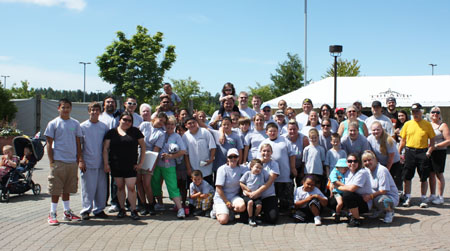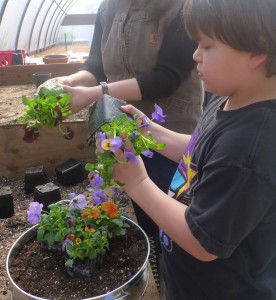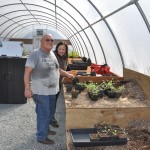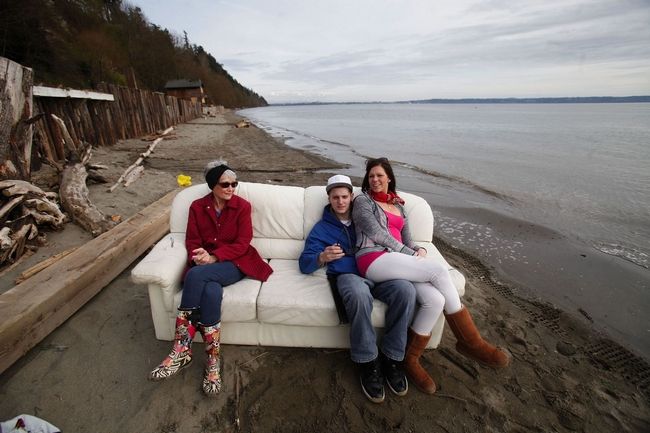By Bill Sheets, The Herald
People who oppose a plan that would bring more trains carrying coal through Snohomish County might have one more firearm in their arsenal by next year.
The Puget Sound Regional Council, a regional transportation planning group, has decided to spend up to $100,000 to study the economic effect — particularly with regard to traffic — of more trains running through the central Puget Sound region.
The planning group, headed by a board of 32 elected officials from Snohomish, King, Pierce and Kitsap counties, studies trends and sets priorities for spending of federal transportation dollars in those areas.
The $650 million Gateway Pacific terminal would be built at Cherry Point north of downtown Bellingham. It would generate 4,400 temporary, construction related jobs and 1,200 long-term positions, according to SSA Marine of Seattle, the company proposing the plan.
Those jobs, however, would likely be concentrated in Whatcom County, meaning that if the study focuses on the economic effect of more traffic backups at rail crossings in the affected counties without the benefit of more nearby employment, it’s not likely to paint a pretty picture of the plan.
Everett Mayor Ray Stephanson, a member of the regional council board, said the study would give local officials some hard numbers to bring to the table. A draft environmental study on the plan is expected to begin sometime in 2014. That study is expected to include economic issues.
“An economic analysis on Whatcom County is one thing,” Stephanson said. “This will do an economic analysis for the Puget Sound region, per se.”
Rick Olson, a spokesman for the regional council, acknowledged that the study applies to a proposal outside the regional council’s jurisdiction.
Still, “there are hundreds of at-grade rail crossings in our region,” he said. “We have communities up and down our four county region who are interested in this study.”
The regional council board members’ vote March 28 to approve money for the study was unanimous, Olson said.
This includes the four Snohomish County board members who were present: Stephanson, Snohomish County Councilman Dave Somers, Mukilteo Mayor Joe Marine and Mukilteo City Councilwoman Emily Vanderwielen.
Snohomish County Executive Aaron Reardon is also on the board but was not present at the meeting, Olson said. In February, Reardon announced his intention to resign as county executive at the end of May. He has yet to submit a resignation letter, however.
The Gateway Pacific terminal would serve as a place to send coal, grain, potash and scrap wood for biofuels to Asia. Trains would bring coal from Montana and Wyoming across Washington state to Seattle and north to Bellingham.
The terminal is expected to generate up to 18 more train trips through Snohomish County per day — nine full and nine empty.
Proponents, including U.S. Rep. Rick Larsen, point to job creation. Opponents say the plan could mean long traffic delays at railroad crossings and pollution from coal dust.
Craig Cole, a spokesman for SSA Marine, offered a brief comment on the regional council study.
“Rail is one of the underpinnings of our economy,” along with ports, airports and roads, he said.
Several conservation groups on Tuesday announced plans to sue Burlington Northern Santa Fe Railway and several top U.S. coal producers, claiming they spill coal into Washington state waterways in violation of federal law.
Railroad spokeswoman Courtney Wallace, in a written statement, said the lawsuit was without merit.
“BNSF is committed to preventing coal dust from escaping while in transit,” she said.
The approval process for the terminal is expected to take at least a couple of more years. Three different agencies are involved in reviewing the terminal plan: the state Department of Ecology, the U.S. Army Corps of Engineers and Whatcom County.
About 14,000 people registered comments on the proposal at hearings and in writing from September through January. More comments will be taken after the draft environmental study is done and before the final study begins.
Meanwhile, the Puget Sound Regional Council expects to finish its study by next February.
“Our study will help jurisdictions up and down the corridor and individuals in the region communicate on that draft,” Olson said.
The regional council plans to advertise in May for a consultant to do the economic study.
Herald writer Noah Haglund and the Associated Press contributed to this report.



















